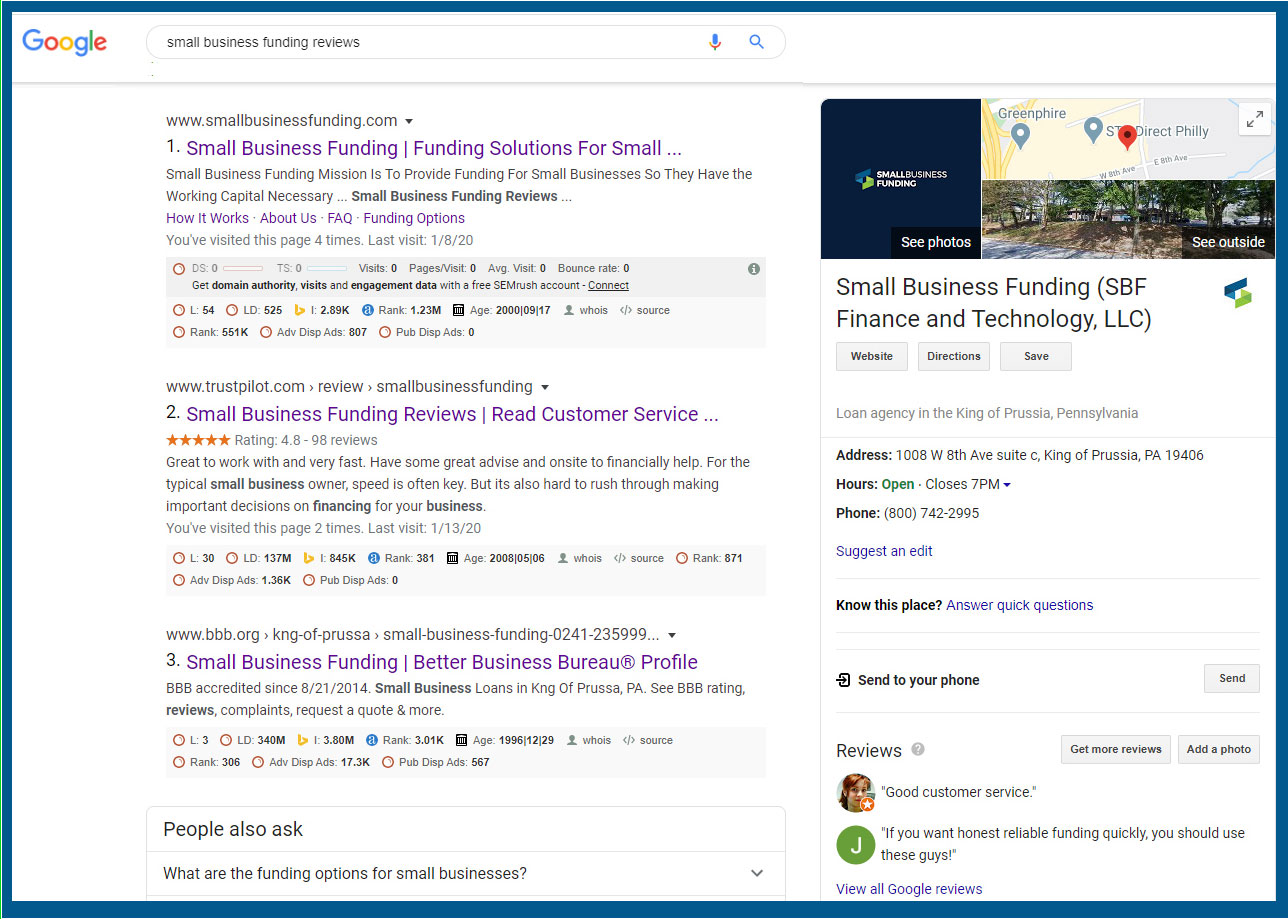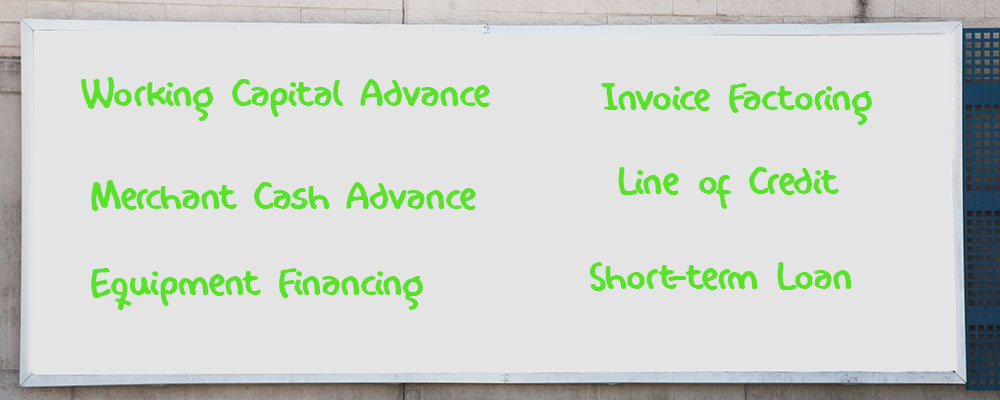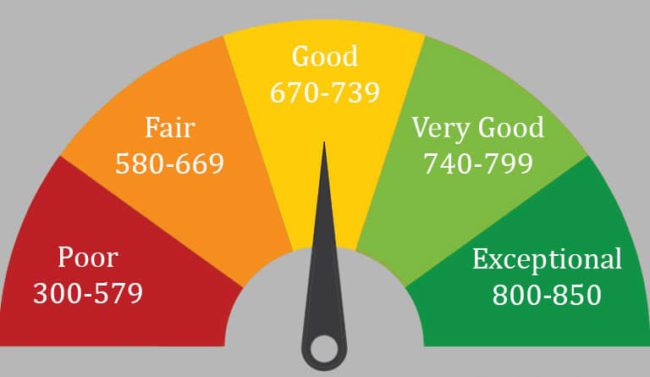
Credit scores are one of the main determining factors when it comes to borrowing. So, for those who have an undesirable credit score, you’ll find it hard to secure a company loan.
In fact, traditional banks hardly ever lend to business people with poor credit. The reason being is these banks do not want to take on too much risk. And anyone with a high credit score is recognized as high-risk. The last thing a lender wants to do is give funding to a business owner that won't have the ability to pay it back.
As a business owner, to be able to secure a loan could mean the difference between expanding your business or sinking.
Having an undesirable personal credit score shouldn’t affect your ability to obtain business funding. But exactly how to obtain a business loan with bad credit will need a little more effort compared to the owner with higher credit.
What You Need to Know Before Applying
As you’re preparing to apply for a business loan with bad credit, there are many things you need to know.
Credit Score
The first thing you should know is the credit rating. You are able to request a totally free copy of your credit report from each one of the three major credit reporting agencies – TransUnion, Equifax, and Experian – annually through annualcreditreport.com.
Knowing this should help you figure out what you may be entitled to and which lenders could be prepared to fund your company.
Lenders
Research which lenders use business people who actually have a lesser than desired credit score. There are many companies willing to provide your business funding, so determine which you will be the greatest fit for business.
See what funding products they need to offer and just what your credit rating requirements are for every option. For example, in case your credit rating is really a 650, that may be lacking for any bank but an alternate lender may have a number of different funding options. However if your score is below a 500, your choices might be severely limited.
Ask for recommendations. Do your research online, check the lender’s reputation through reviews on sites such as TrustPilot, the Better Business Bureau, or Google.

Working Capital Needed
Determine how much working capital you'll need.
Factors Lenders Take a look at When Managing your Eligibility
Each step to determine eligibility to receive business funding with poor credit will be different by lender. These factors give lenders a concept how you manage your business finances and determines for a moment have the cash open to repay the loan or advance.
Here are some factors which Small Business Funding will appear at:
Credit Score
Any score under 680 and a traditional bank will consider you “high risk” and likely decline you. With lots of alternative lenders, they will pay a credit score as low as 500. There might be several which will approve you with a score under 500 but the other eligibility factors will have to strongly outweigh this poor credit score.
Time in Business
Lenders want to see a minimum time in business so they can observe how you’ve managed your money for the reason that time. This minimum will vary by lender and by the kind of funding you’re entitled to and decided to take.
For example, Small company Funding requires a minimum of Six months running a business for the Working Capital Advance product and up to 24 months running a business for the SBA Loan.
Annual Revenue
Annual revenue is partially used to determine the number you could potentially receive if approved. Somebody who has a regular monthly revenue of $10k probably won’t get approval for $100k.
There is a minimum annual revenue requirement that will vary with respect to the lender and also the funding option.
Small Business Funding requires a yearly revenue of $180k (or $15k month) for the Capital Advance. Or our business line of credit would need a minimum annual revenue of $300k.
Cash Flow
Having a regular cash flow is important for both the success of the business as well as your ability to get approved for funding. Lenders who see numerous negative balance days will view you like a risk.

Your income paints a picture to an underwriter, in case your finances are relatively consistent this will help offset your credit rating.
This information, along with your revenue, will be verified together with your business banking account statements. These statements will be required, so if you don’t have a business bank account, you will not be approved.
Improve Your odds of Receiving a Business Loan with Bad Credit
Applying for any business loan/funding takes preparation. There are a few things you can do to improve your chances of getting a small business loan with bad credit.
Provide Collateral
By putting up collateral, a lender might be more prepared to provide you funding because this puts a hazard on you. Now if you were to default around the loan, the lending company can take ownership of the collateral. This will offset their risk since they can sell the collateral to regain their losses.
Have someone co-sign
Not all lenders will accept a co-signer, but when you find one who does, this option could help improve you likelihood of getting approved for any business loan.
The co-signer will need to have excellent credit. They'll also need to feel the application and provide all necessary documentation. And they'll have to co-sign all loan documents, assuming responsibility from the loans in the event you default or are unable to create a payment.
Types of Small company Loans for Bad Credit
There are some types of small company loans that are available for somebody with poor credit. That which you qualify for will depend on the factors outlined above.
Here are the funding options alternative lenders may offer:

Working Capital Advance
A Working Capital Advance is usually the best choice for getting approved for funding having a bad credit score. This funding option is not considered financing while there is no APR and also the payments are daily (in some instances weekly) instead of monthly. It's considered an advance of cash on future charge card receivables. Payments are calculated in a factor rate, no annual percentage rate (APR).
The lender holds back a portion of your credit card receivables via your charge card processing or via your everyday ACH debit out of your banking account.
Small Business Funding’s minimum FICO requirement of this option is 500.
Merchant Cash Advance
A Merchant Cash Advance is similar to the Working Capital Advance, the real difference is when payments are made. Every day when you batch your charge card sales to your merchant processor a collection number of those daily sales goes right to the lending company.
Equipment Financing
Equipment financing is a funding option employed for the specific purpose of purchasing equipment. The equipment itself is then used as collateral, this can help keep your APR lower. Additionally, it allows lenders to approve owners with lower credit ratings.
Small Business Funding’s minimum FICO requirement for this option is 600.
Invoice Factoring
Invoice factoring happens when you sell your unpaid invoices, at a percentage of the value, to some lender plus they collect payment directly from your visitors.
Line of Credit
With a business type of credit you are able to withdraw the amount you need, when it's needed, as much as the approved amount. You simply need to pay the interest on the amount you withdraw.
Small Business Funding’s minimum FICO requirement for this method is 620.
Short-term Loan
A short-term loan is when you receive a lump sum of money which you’ll have to pay back inside a relatively short time. Usually between 1 and 5 years.
Small Business Funding’s minimum FICO requirement for this method is 640.
How to Get a Business Loan With Better Terms in the Future
The better your credit rating, the better terms you might be able to receive plus you’ll stand a stronger chance of qualifying for a loan/funding. However, if you need a loan now, there isn’t much you can do to improve what terms you’ll get should you be eligible for a funding.
But there are some things you can start doing right now to enhance your chances of getting a loan in the future with better terms.
Improve Personal Credit Score
Start trying to improve your individual credit score. There are many ways to accomplish this, but simply following these guidelines are a great way to begin:
- Make sure all of your payments are made on time
- Get your credit-to-debt ratio under 30%
- Limit the amount of hard inquires creditors use when checking your score
- Actively monitor your credit reports to ensure they’re accurate
Establish and Build Business Credit
Establishing after which building your business credit can help you separate your personal finances from your business finances. Once your business has a strong history of building credit and making payments on time, then less emphasize might be placed on your personal score.
Build a History with a Lender
If you be eligible for a a loan or other funding option with a specific lender, when you are permitted to receive funding again, opt for the same lender. If you’ve established a great good reputation for making your instalments on time, this lender will view you favorably, like a lower risk, and you'll be able to get better terms.


